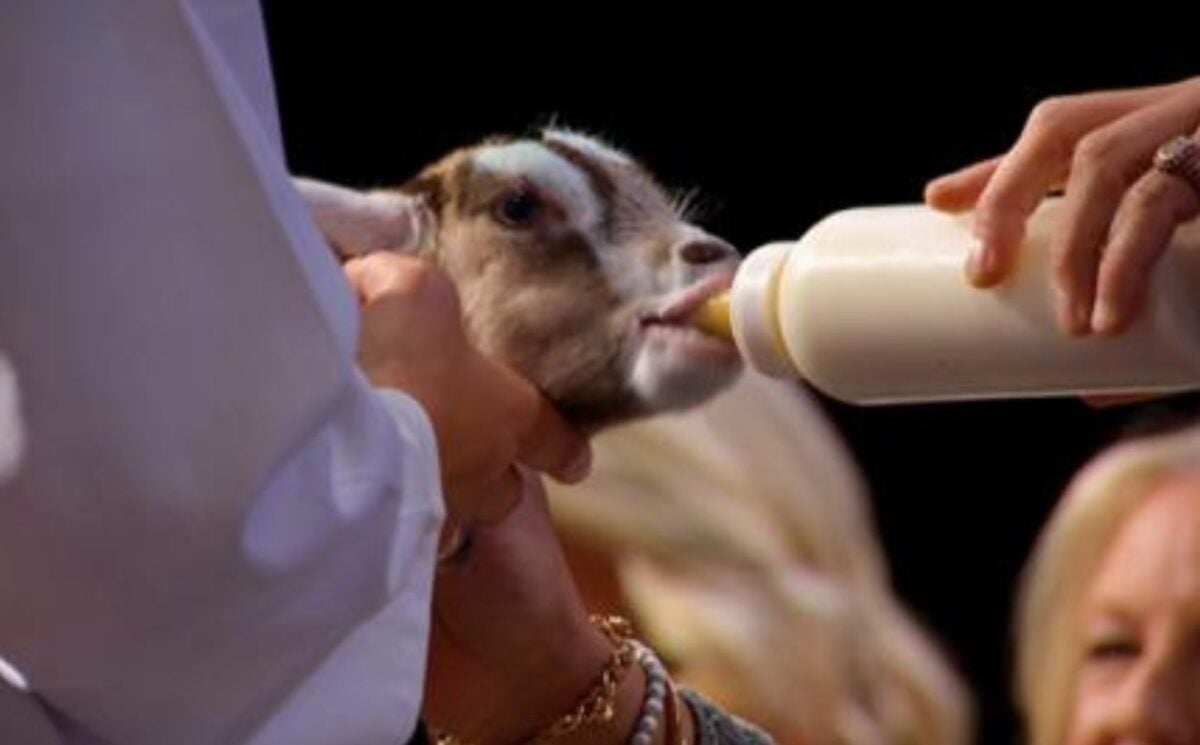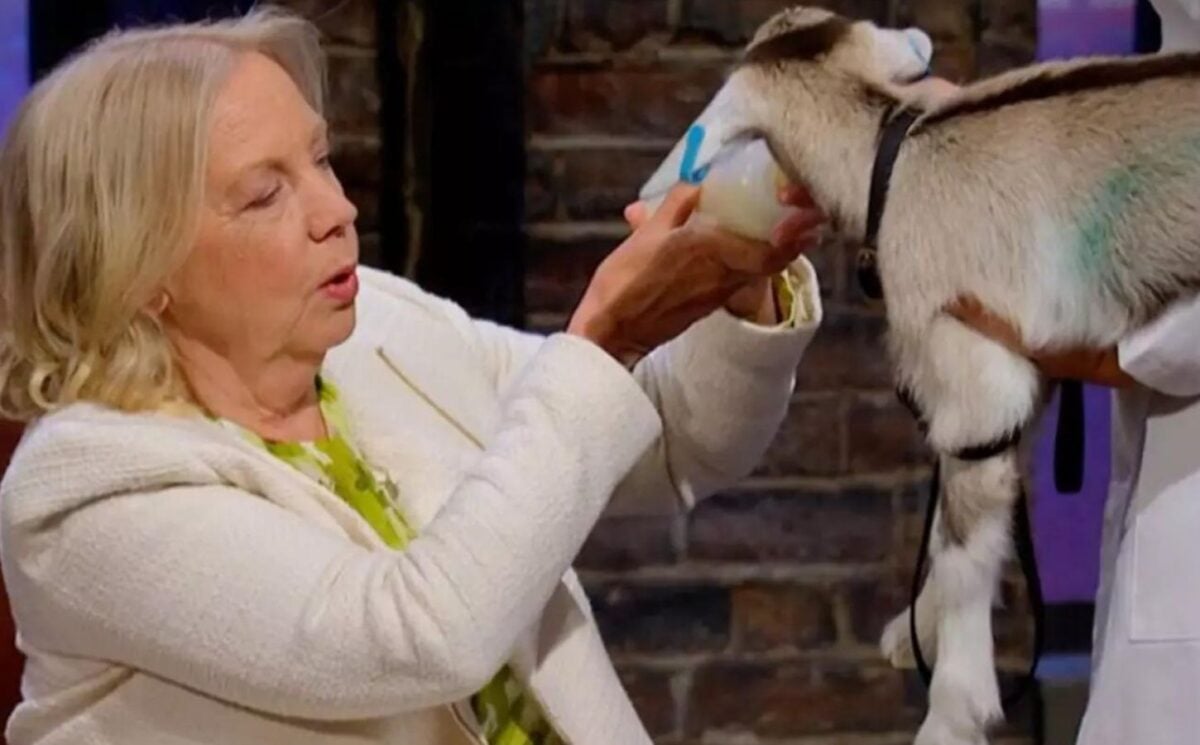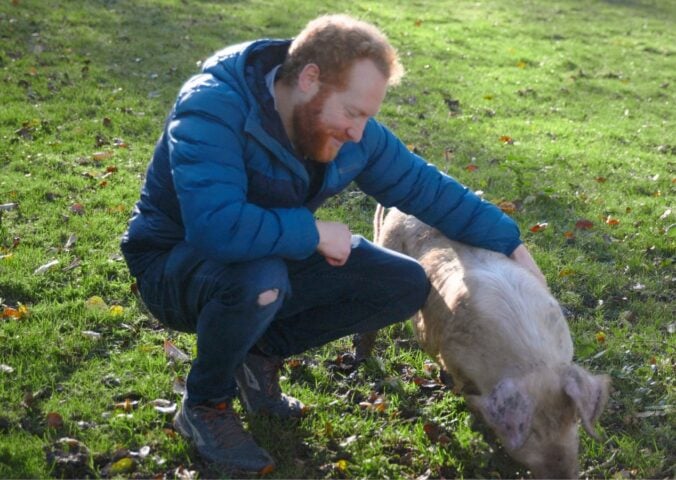The BBC’s Dragon’s Den has sparked a debate around animal cruelty and ethics after a Somerset-based goat’s milk skincare company appeared on the programme.
On episode 10 of the 21st series of the show, Nick King and his sons Daniel and Ricky presented their Somerset-based business Goats Of The Gorge to the panel of angel investors. They brought a two-week-old baby goat with them, who was passed around and fed by the panel. King explained that the idea for the skincare came when his doctor recommended drinking goat’s milk for his osteoporosis condition. Goats Of The Gorge claims that their products are cruelty-free.
Dragon’s Den is a popular British television programme, in which startup companies and aspiring entrepreneurs have an opportunity to pitch their business to a panel of experts and attempt to procure investment from them.
One of the show’s longest-term stars and investors, Deborah Meaden, was the “dragon” who raised concerns about the company’s animals, and how ethical they could claim to be alongside their plans to grow and expand their manufacturing.
Deborah Meaden raises concerns

Meaden took the discussion in a new direction when she explained that she is plant-based. She initially said she was vegan, but then corrected herself as she is not “strict about her use of skincare products.”
She told the family: “I don’t eat any animal product, whether dairy or animal, I’m not so strict on the skincare as long as it’s high welfare animals, so what sits behind this in terms of welfare?” They claimed that all their animals were “very well looked after,” and that they use milk from “show goats” which was otherwise going to be thrown away. Meaden was impressed by this, saying it was a “good answer.”
She decided not to invest, saying “I’m not that supportive of the dairy industry, or the goat industry. I would cause you a problem because right now you’re quite small scale and you can see the goats that you’re buying from. But, as you get bigger, I suspect you’re going to have to think about those things, and I’m going to be standing in your way saying ‘you can’t do that.’”
Viewers criticize the company
Writing online, several people further questioned the “cruelty-free” claims. Cruelty-free is generally used to refer to products that aren’t tested on animals, and companies that use animal products in ingredients often promote themselves as cruelty-free.
“Hmm, not sure about cruelty-free. Where you use animal products, there’s cruelty”, was one comment.
Another said: “This is a dairy industry business so without a doubt it is not cruelty-free!”
A third commented: “No deal for goat’s milk beauty products! Thank goodness! Goat’s milk is for baby goats – not slathering on human skin!”
And a fourth said: “Talking about goat products such as goat milk and soap and bringing on a goat, is that ethical?”
The goat milk industry is inherently exploitative, and it’s also on the rise. Find out more about the ethical costs of goat farming here.
More like this:





